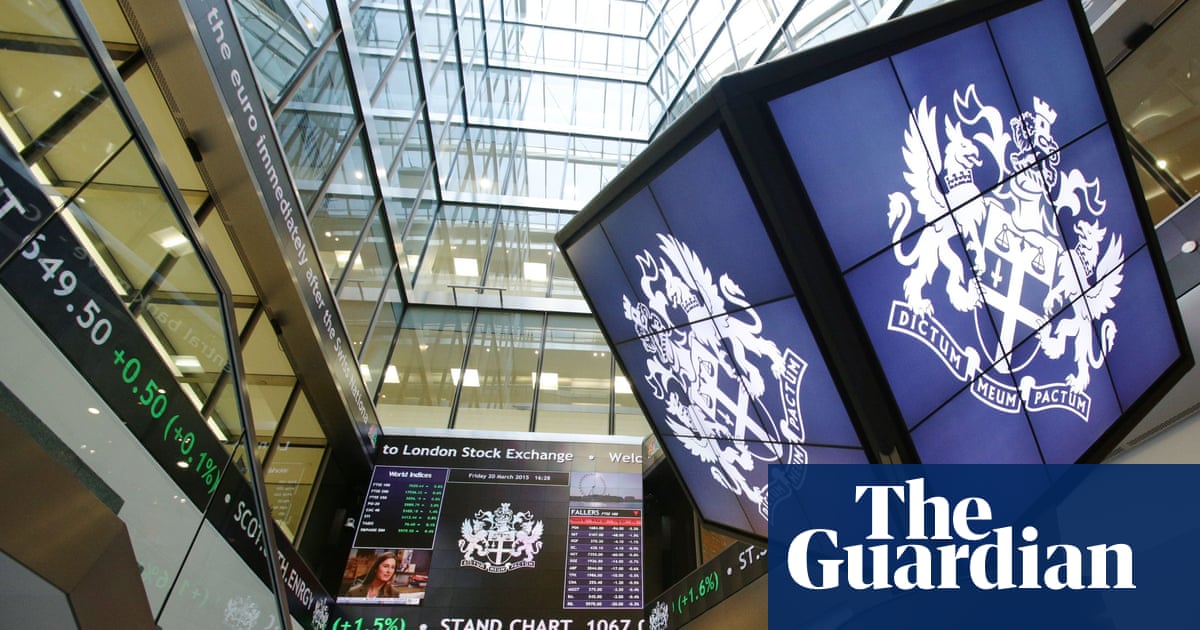
The UK stock market has hit a record closing high, amid optimism that the Bank of England will cut interest rates twice this year, and easing geopolitical tensions in the Middle East.
The FTSE 100 index of blue-chip stocks listed in London ended trading on Monday above its previous closing peak, set in February 2023, helped by rate cut hopes and a weakening pound.
The index closed at 8,023 points, having jumped by 128 points, or 1.6%, on Monday. Its previous closing high was 8,014 points.
This left the index shy of its all-time intraday high, also set in February 2023, when the index hit 8,047.06 points.
Investor spirits in London were lifted by expectations that the Bank of England will lower interest rates by half a percentage point this year, down to 4.75% by December from the current 16-year high of 5.25%.
The City money markets brought forward the likely timing of the first rate cut to August, from September, after the Bank’s deputy governor, Sir Dave Ramsden, predicted on Friday that UK inflation could be lower than expected over the next three years, and remain close to the Bank’s 2% target. The headline rate of inflation is now 3.2%.
The pound weakened to $1.23 against the US dollar on Monday, the lowest since November. A weaker pound has supported share prices in London this year, as the lower currency makes the overseas earnings of multinational companies more valuable in sterling terms.
Easing tensions in the Middle East also lifted investors’ confidence, after a weekend without further attacks between Iran and Israel after the Israeli missile attack on the Iranian cities of Isfahan and Tabriz on Friday.
“The FTSE 100 bounced back strongly on Monday amid relief that tensions in the Middle East seem to have been contained for now,” said Russ Mould, the investment director at AJ Bell. “Travel and retail stocks were among the gainers on the FTSE 100, with precious metals miner Fresnillo the only stock showing notable weakness, with gold and silver prices dipping as demand for safe havens eased.”
Susannah Streeter, an analyst at Hargreaves Lansdown, said the FTSE 100 had “a spring in its step” at the start of the week amid an easing of geopolitical tensions.
“London’s blue-chip index has had a surge of power as heightened geopolitical tensions have eased, and investors assessed the brighter prospects for the UK economy, with interest rate cuts spied on the horizon,” Streeter said. “The pulse of positivity comes in the absence of fresh retaliatory attacks by Israel or Iran and the US flexing its funding muscle and passing a crucial aid package for Ukraine.”
The FTSE 100 index has gained almost 4% so far this year amid optimism that Britain’s economy has returned to growth in 2024 after dropping into a shallow recession at the end of 2023.
That leaves it lagging behind other European indices, with France’s Cac and Germany’s Dax up 6.5% so far this year.












